How many of these home appliance mistakes are you making?
What not to do with your home gadgets
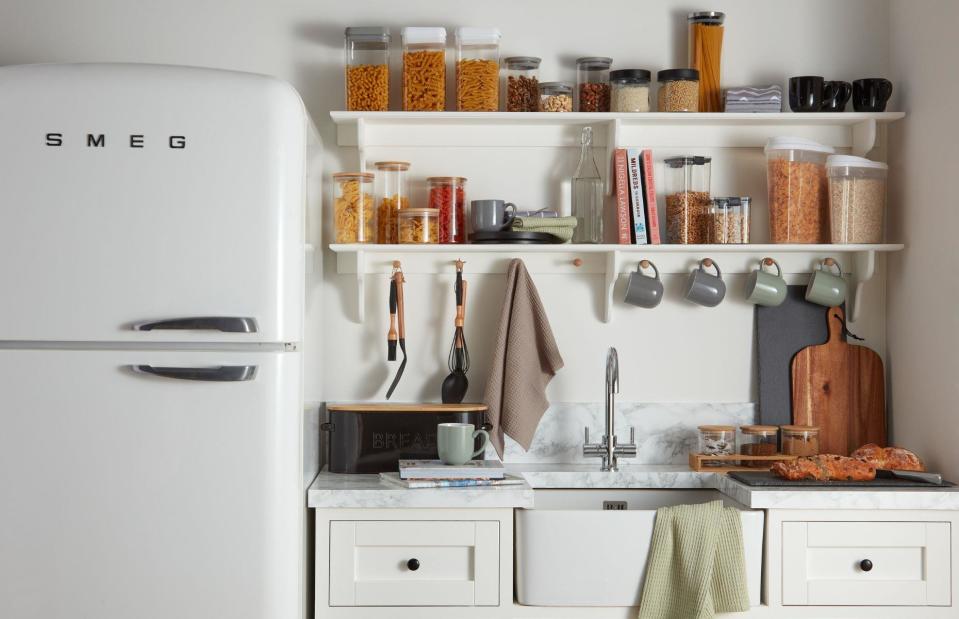
B&M Kitchen
Pushed to the limits to keep our homes clean and comfortable, it's time we gave something back to the gadgets we couldn't live without.
From cramming your freezer to capacity to failing to clean the inside of your dishwasher regularly, certain costly mistakes could be killing your devices, or worse, making them potentially dangerous. Read on to avoid these housekeeping errors that will save you time and money...
Forgetting to clean your dishwasher
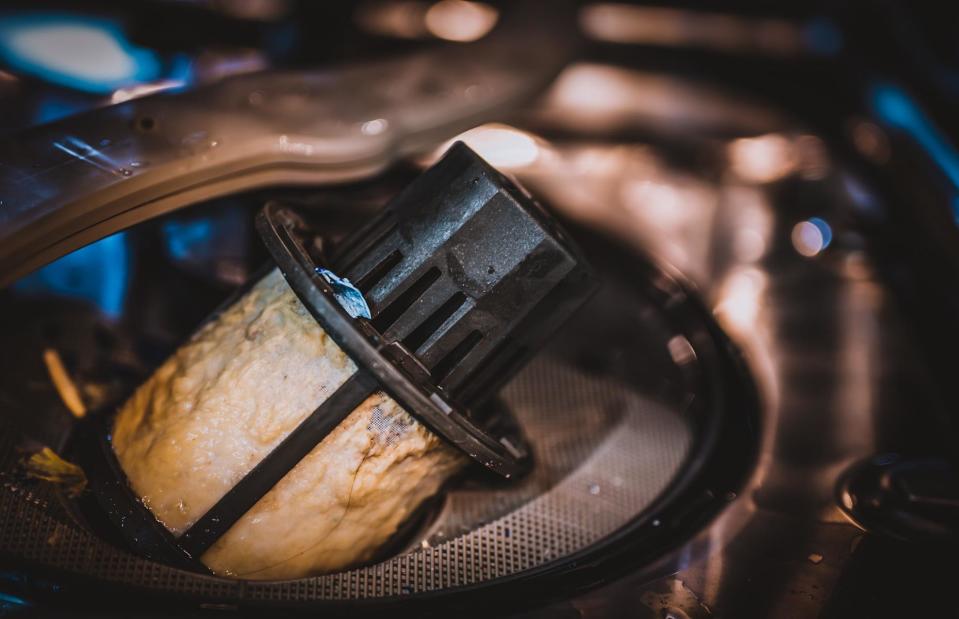
Lost_in_the_Midwest / Shutterstock
Regularly cleaning the inside of your dishwasher is the best way to help prevent bad smells and the “build-up of detergent, minerals and dirt that can cause your dishwasher to not clean properly,” Whirlpool explains.
Grime can quickly accumulate on your dishwasher filter, so every time you run a cycle, that grime is being rinsed all over your crockery and cutlery. Every 30 days, run your machine on (at least) a 60°C (140°F) cycle with a dishwasher cleaning tablet, or a vinegar and baking soda solution.
Failing to maintain your air fryer
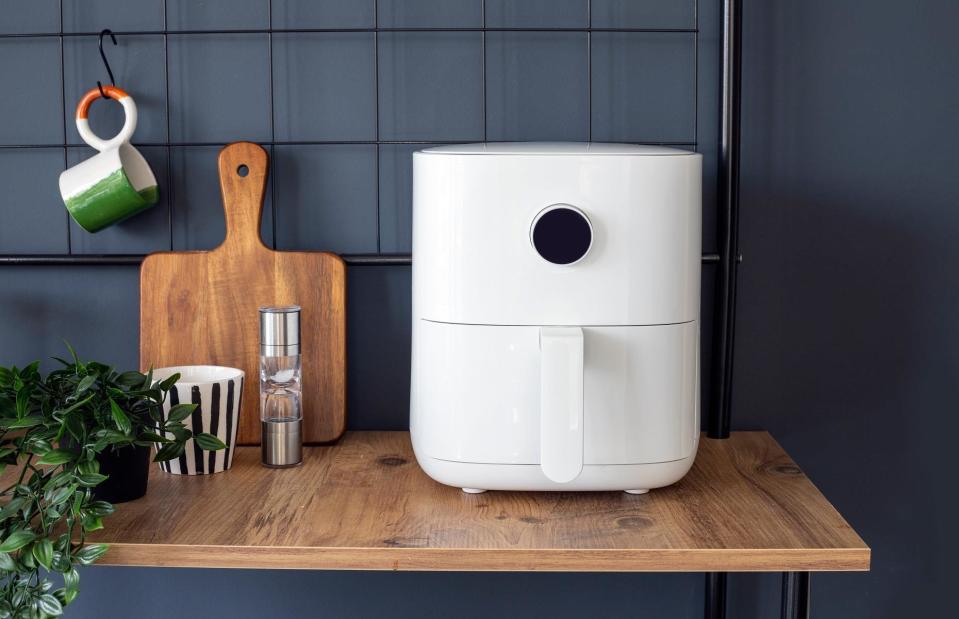
Hazal Ak / Shutterstock
Air fryers remain a must-have kitchen gadget, but did you know yours could be harbouring hidden germs? “Air fryers require their own care and maintenance due to the type of foods often cooked – sometimes greasy or crumb-prone items – and, therefore, should be cleaned more frequently,” suggests Food and Wine.
If left ignored, the grime inside your air fryer could become unhygienic and a fire hazard. It could also stop cooking food properly, leading to potential food poisoning. Generally, it's best to follow your manufacturer's cleaning instructions.
Not replacing range hood filters
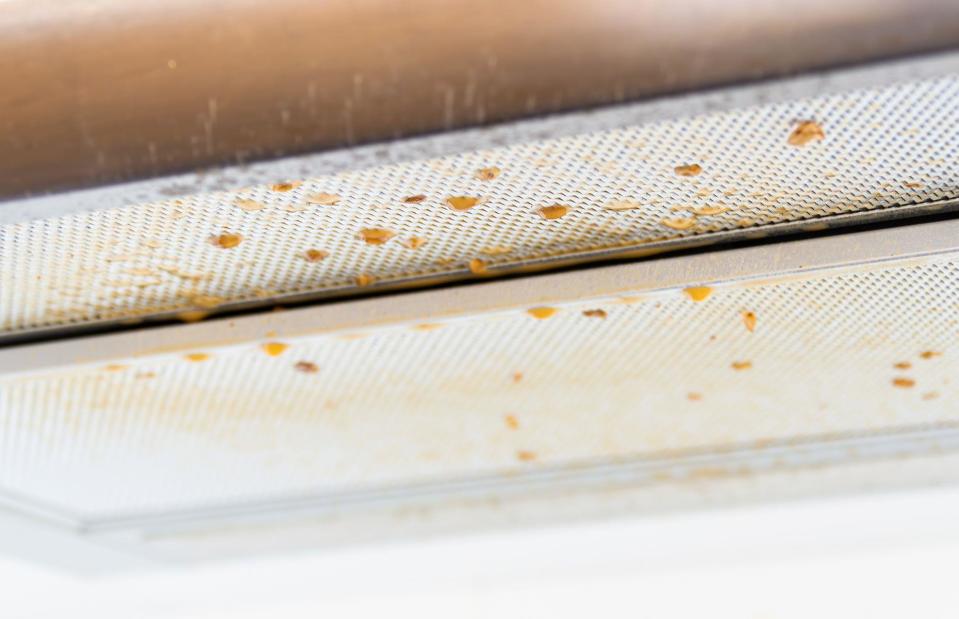
cunaplus / Shutterstock
Designed to absorb excess steam and stop grease and food particles from clogging up your vent, cooker hood filters are essential for keeping your kitchen clean and odour free. Yet despite their constant use, this is a part of the kitchen that is often completely overlooked.
Depending on the model of your extractor and how often it's used, you should look to replace your filter every six to eight months. The more grease and heat the hood is exposed to, the more frequently you should change the filter.
Cooking in a dirty oven
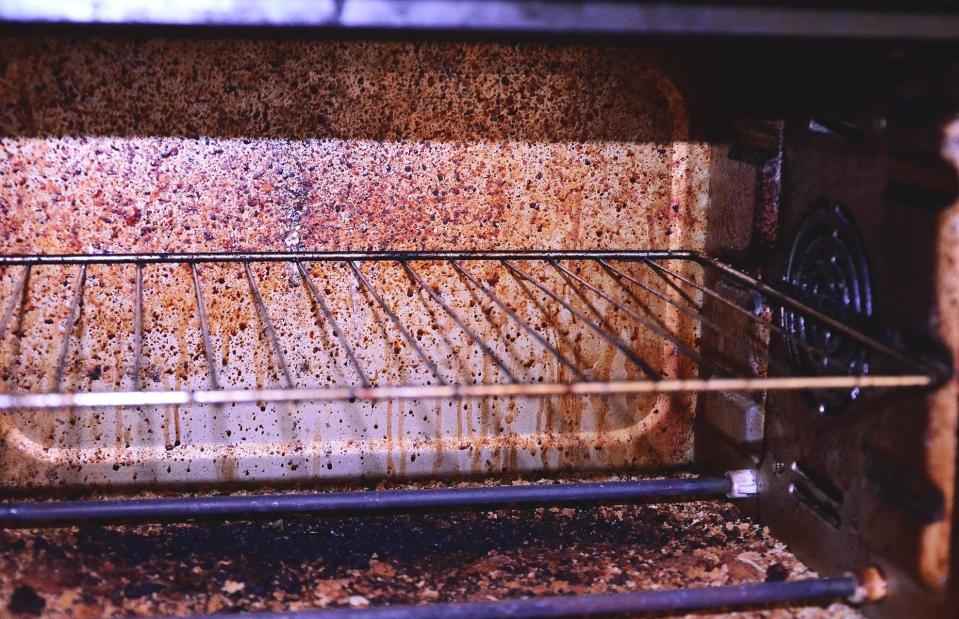
Anna Illina / Shutterstock
Our ovens are used frequently, from quick mid-week meals to big family dinners, and many of us don't clean ours nearly as often as we should. “Day to day use of your oven will create a build-up of grease and grime from any spills and oils left in the bottom of your oven,” says A Cleaning Service. “This will cause many dangers and health risks.”
For example, 53% of domestic fires are caused by grimy ovens. A dirty oven can also affect the flavour of your food, create excessive smoke and lead to bad odours and inefficiency of the appliance. It's also essential that you ensure any baking trays or dishes are clean and free of grease before using them.
Not descaling the coffee machine
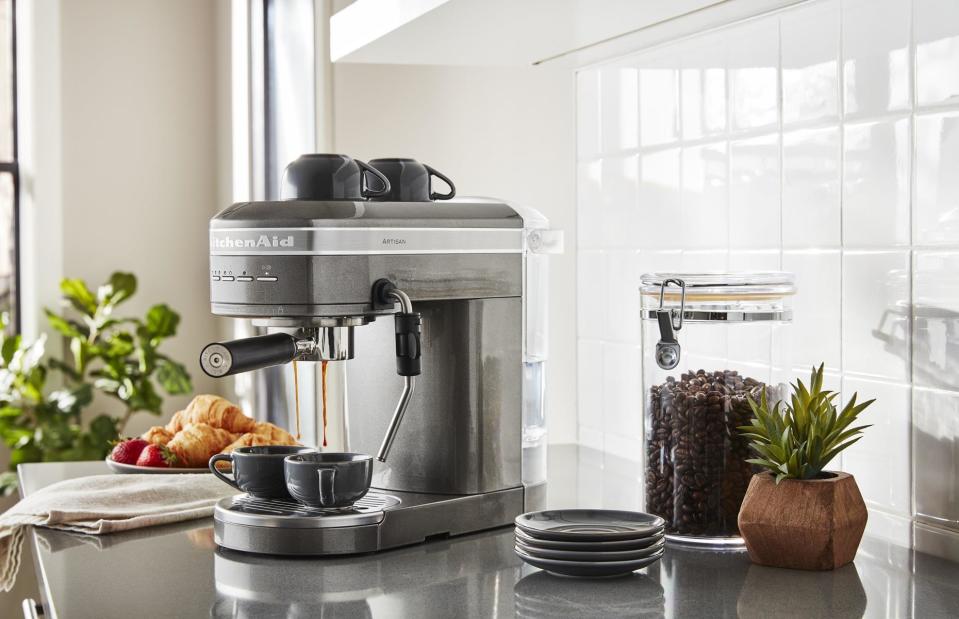
KitchenAid
Whether you’re a lover of pods or a bean-to-cup brewer, coffee is a daily essential for many. But, your much-loved coffee machine needs to be cared for. Water is a key element in brewing perfect coffee, so descaling your machine is essential. Your cleaning routine will depend on the model you have, but usually, such gadgets require descaling every few months to remove limescale, oils and residue.
In hard water areas, this is even more important. Failing to descale your machine will not only damage it but will affect the flavour of your brew. Plus, there’s extensive research showing that bacteria and germs thrive inside coffee machines. A study of Nespresso and Krups machines revealed that bacteria live inside drip trays and can “spread to the rest of the machine as they multiply due to moisture”.
Mounting a TV above a fireplace
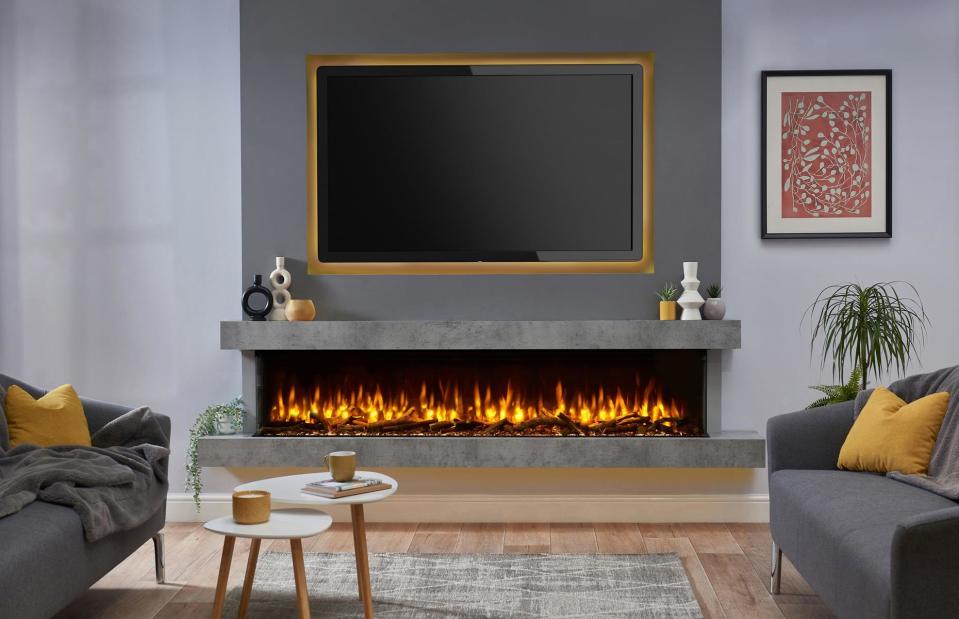
Charlton & Jenrick
In modern interiors, we often see sleek flat screens mounted above roaring fireplaces and while this might be aesthetically pleasing, there are some issues with this design choice. It goes without saying that electricity and excess heat don’t mix, so hanging a television above a fire could be dangerous.
As long as the temperature above the fire remains below 37°C (100°F), your TV should be safe. However, damage caused by heat could void your TV’s warranty, as well as affect its performance and longevity.
A fantastic alternative is a faux fireplace, like this app-enabled, electric model from Charlton & Jenrick, which provides all the warmth and comfort of a real fire, without actual flames.
Abandoning the iron

Africa Studio / Shutterstock
If you care for your iron in the same way you care for your clothes, you will significantly extend its life and there are a handful of ways you can do so.
Firstly, using filtered water will stop limescale building up, while emptying the iron after every use will enable it to dry out, eliminating rust. Many forget to clean their irons, which can significantly improve their effectiveness. As well as wiping down the ironing plate, use a vinegar solution inside to remove residue and clean out those all-important steam ports.
Ignoring a loose oven door seal
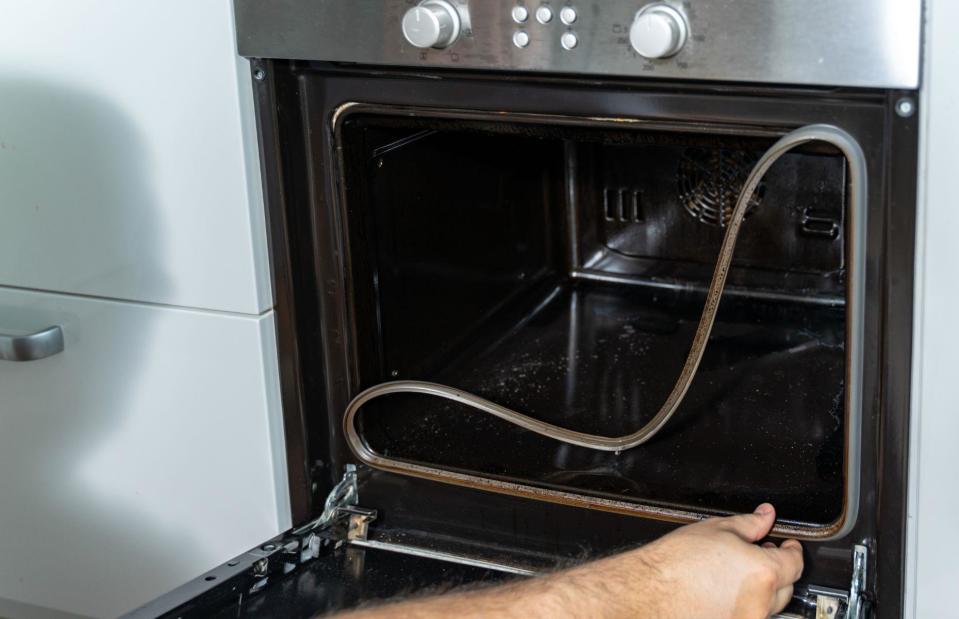
Lena Ogurtsova / Shutterstock
That faulty door seal could not only be boosting your utility bills, but rendering your oven entirely inefficient, elongating cooking times and hindering airflow.
An oven's door seal is responsible for keeping heat inside, so if yours is loose or broken, hot air will be free to escape. The seal also acts as a clever buffer, stopping the oven's delicate elements from making contact, so a faulty seal could irrevocably damage your appliance. Luckily, replacement seals are inexpensive, so you can fix this small issue with a little DIY know-how.
Ignoring rust on dishwasher tines
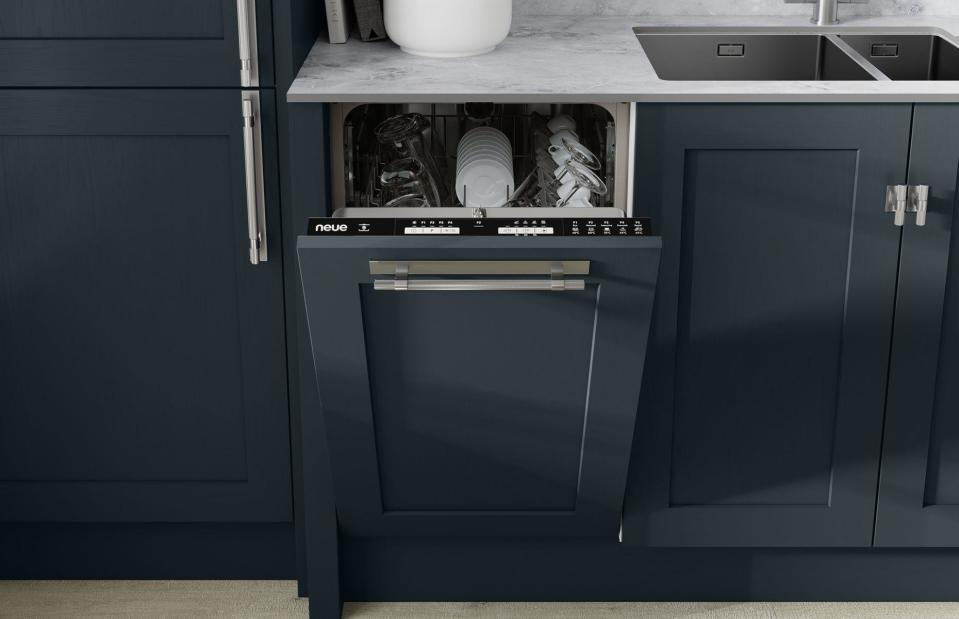
Benchmarx Kitchens
There are lots of things that can deteriorate your dishwasher, but nothing is as damaging as rust. Your dishwasher's tines, or racks, are formed from metal coated in vinyl or rubber. With every use, this protective coating is worn away, exposing the metal to water – the perfect environment for rust to thrive.
Luckily, removing rust is relatively simple. Add some citric acid to your machine and run it empty on a standard cycle. This should be enough to strip the rust from your machine.
Not caring for the washing machine

Ian Dyball / Shutterstock
Despite the fact they get lots of use, we're often guilty of overlooking our washing machines. Stagnant water can soon turn to mould, giving off an unpleasant odour that will transfer to your belongings.
Cleaning your machine regularly will lengthen its life and improve the cleanliness of your clothes. Clean inside by pouring 230ml of white vinegar into the drum and running an empty cycle at 60ºC (140ºF). Don't forget to wipe the mould from the door seal and tackle that mucky detergent drawer.
Overlooking washing machine mechanisms
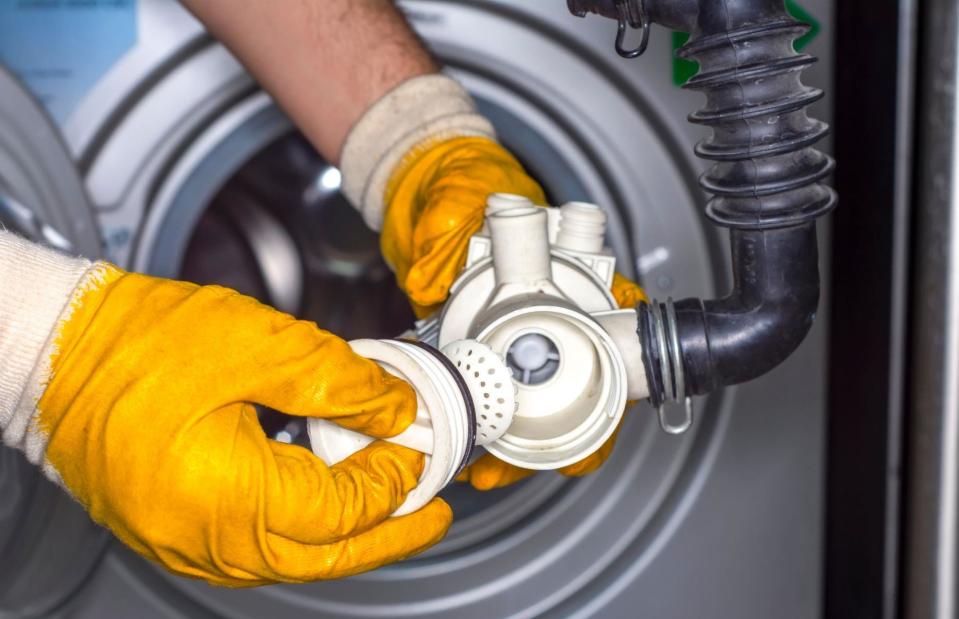
Darkdiamond67 / Shutterstock
While it’s important to regularly clean your washing machine, it’s also essential that you don’t overlook all the key mechanisms that help to keep your device running. Since almost all washing machine leaks are caused by faulty hoses, be sure to check yours regularly for signs of deterioration.
The filter shouldn't be ignored either, so once a month make a point of removing any grime that builds up there. Doing so will preserve the machine's lifespan and help to keep running costs to a minimum.
Not cleaning the blender immediately

Cuisinart
If you own a food processor, a juicer, or a hand-held blender, then you’ll know how difficult they can be to clean. Yet leaving them after use is one of the most detrimental things you can do, since it allows food to become lodged in hard-to-reach places.
Over time, this can damage the blender's mechanisms, blunt its blades and render it unhygienic. As soon as you’ve finished blitzing, soak your blender in warm water. A pipe cleaner brush or toothbrush will allow you to tackle every nook and remove stubborn stains and odours, too.
Lining the oven with tin foil
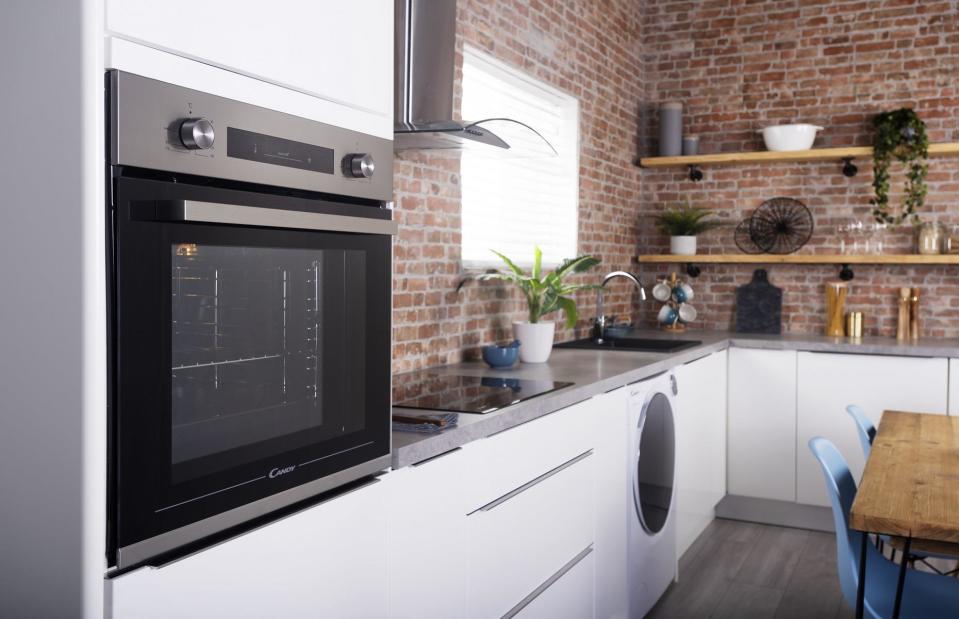
B&Q
While many think that lining the bottom of the oven or grill with aluminium foil is the perfect way to protect it, reducing the amount of cleaning required, it's actually proven to be highly dangerous.
“With any type of oven, putting foil at the bottom can be risky,” CNET explains. “The foil may not be able to withstand the high heat and can melt to the oven, damaging it permanently.” Not only does foil reflect heat, leading to overcooked food, but it could also burn out the heating elements inside your device. More importantly, if you have a gas oven, foil could become a very real fire hazard.
Not emptying the vacuum cleaner
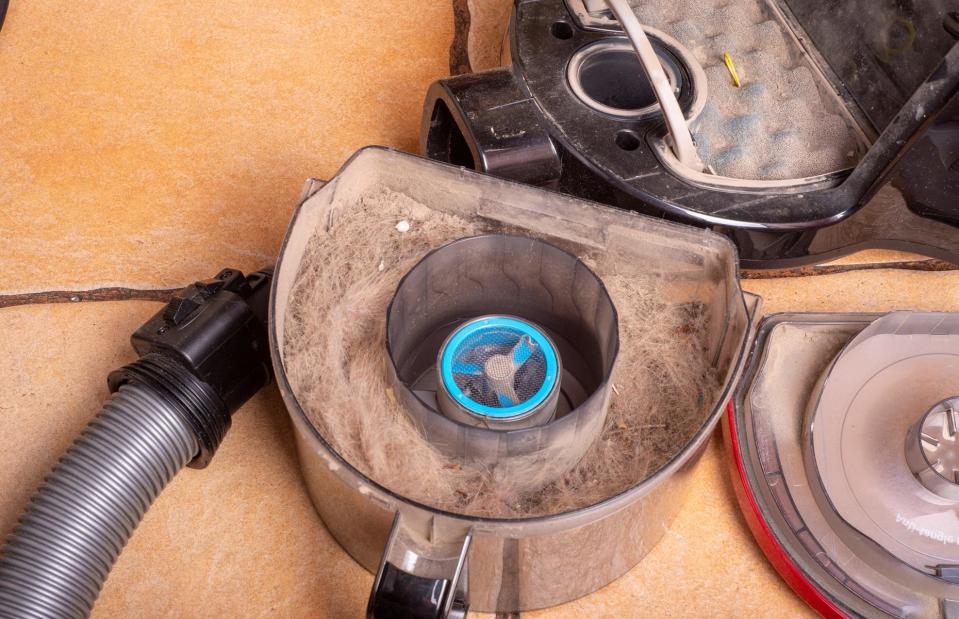
Igor Chus / Shutterstock
Allowing dirt and dust to build up in your vacuum cleaner can be catastrophic for this essential home device. “Over time, filters can become clogged with dirt and debris, reducing their efficiency and allowing fine particles to escape back into the air,” explains Broan-NuTone. “If not replaced or cleaned regularly, the vacuum cleaner may inadvertently become a source of air pollution instead of eliminating it.”
A clogged suction mechanism won't work efficiently and could eventually cause it to overheat and malfunction. Most manufacturers recommend changing the dust bag every three months, but for bagless machines, you should empty the collection cylinder after every use. Doing so will allow the machine to achieve maximum performance.
Forgoing boiler maintenance
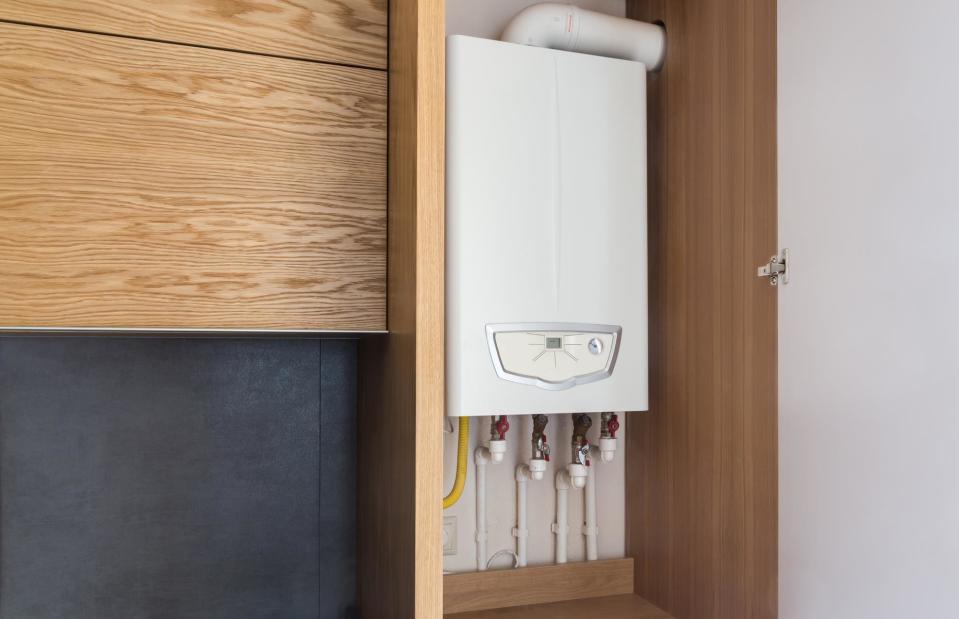
Raisa Suprun / Shutterstock
Responsible for heating our homes and water all year round, boilers work overtime but we only really pay attention to them when something goes wrong. Expensive to fix and replace, we can easily elongate the shelf-life of our boilers with a few regular checks. “Getting your boiler serviced can help you avoid costly boiler repairs in the long run and give you peace of mind that your boiler is safe,” says Checkatrade.
One of the main things to look for is leaks. Boiler leaks cause a loss in pressure that, if ignored, will eventually break your appliance. Leaks also waste water and inflate utility bills. You should organise a boiler service, with a qualified professional, once a year.
Grilling with the door closed
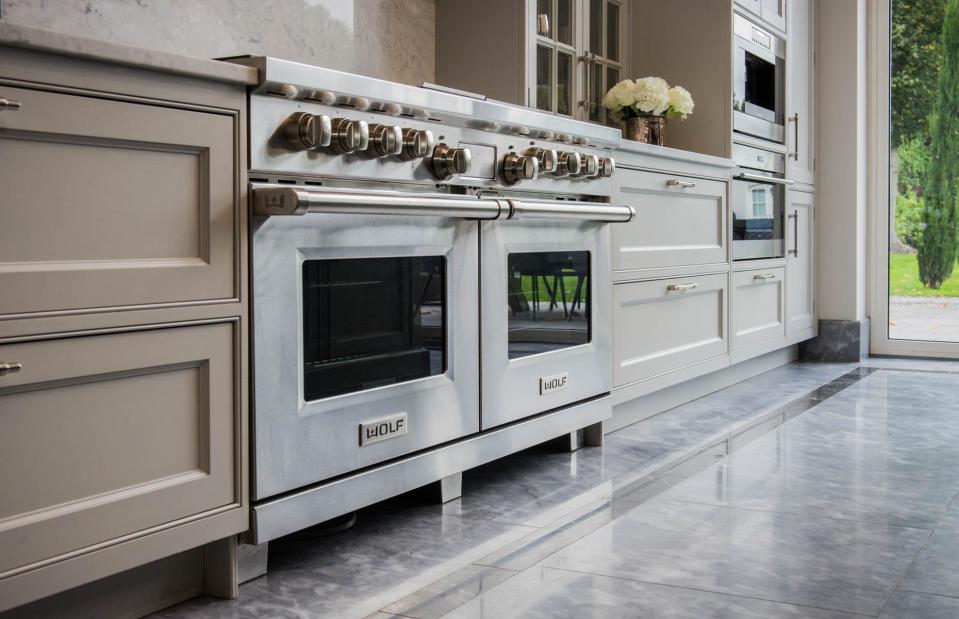
Rehome
If you own an oven with a built-in grill function, then pay attention to this essential appliance tip. When using the grill, you should always leave the door slightly ajar, since on this setting the device will be unable to regulate its own interior temperature.
As the heat rises to dangerous levels, you could be left with overcooked food and permanent interior damage. The intense heat could melt the seal around the oven door, too, preventing it from functioning effectively.
Failing to descale the kettle
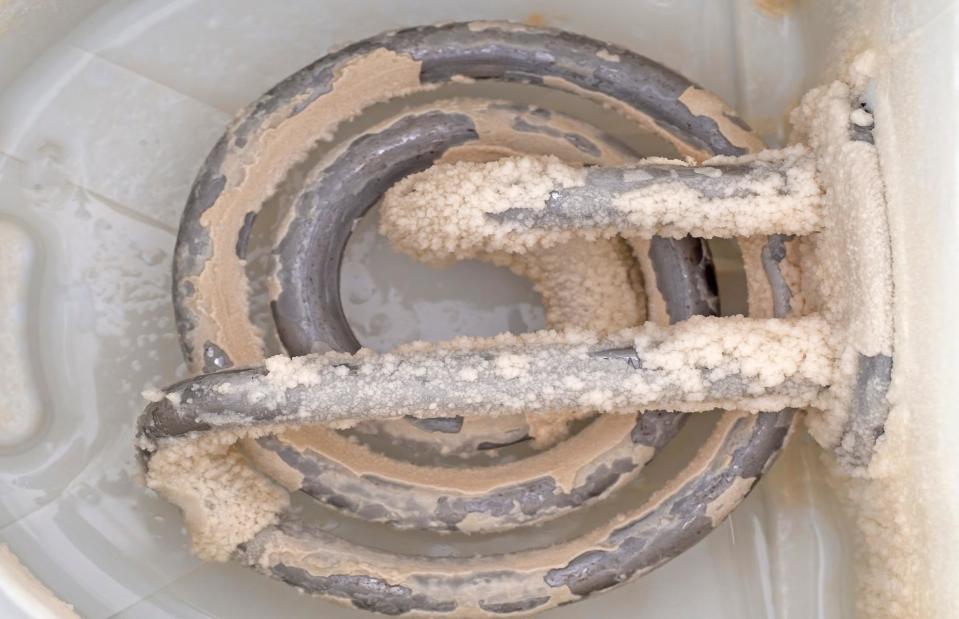
Sarah2 / Shutterstock
Limescale can be disastrous for electrical items, especially for those living in hard water areas. If left ignored, limescale will coat the inside of your kettle (just like in the image shown), altering the taste of your drinks and eventually causing the device to fail.
An easy and cheap fix, regularly removing limescale from your kettle will lengthen its life and allow for perfect cuppas every time. You can buy descaling solutions, but for a cheaper alternative, simply fill the jug with a mixture of half white vinegar and half water. Boil the kettle and leave it to work for at least an hour.
Opening the microwave door during cooking
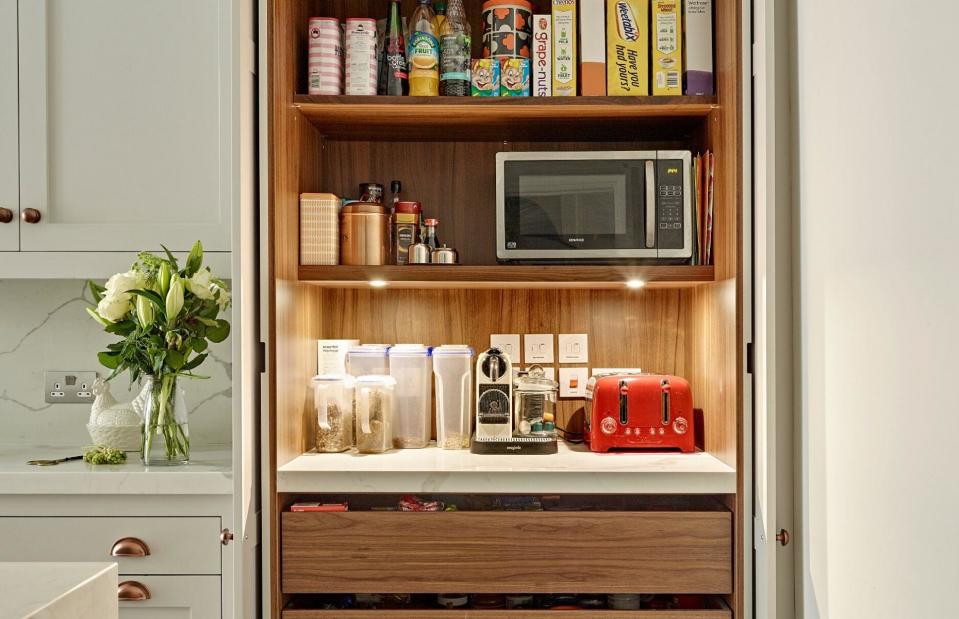
Brayer Design
Even though most microwaves have a 'stop' button in place, many of us never use it. Instead, we're guilty of simply opening the door mid-cooking – something that can be extremely bad for your device.
Over time, opening the door when the power is on will break your appliance prematurely, since you're effectively interrupting the power circuit and confusing its switches and relays. If you do this too often, you could render the device useless.
Ignoring broken fridge gaskets
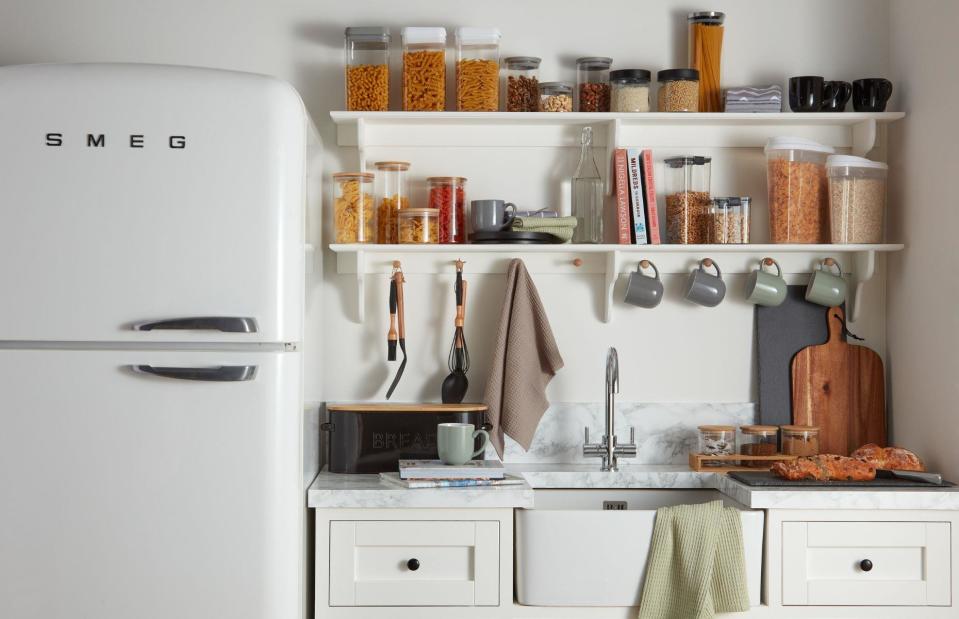
B&M Kitchen
In the same way that the door seal on an oven helps to keep the heat inside, rubber gaskets help to keep a fridge airtight and at the perfect temperature.
Damaged or loose gaskets can be detrimental to your appliance, so regular checks will ensure you save energy and keep your food fresher for longer. It’s also important that you keep the door seal free from dirt. Once a month, wipe it down with a solution of warm water and washing-up liquid, drying it properly with a clean cloth.
Overlooking air-conditioning filters
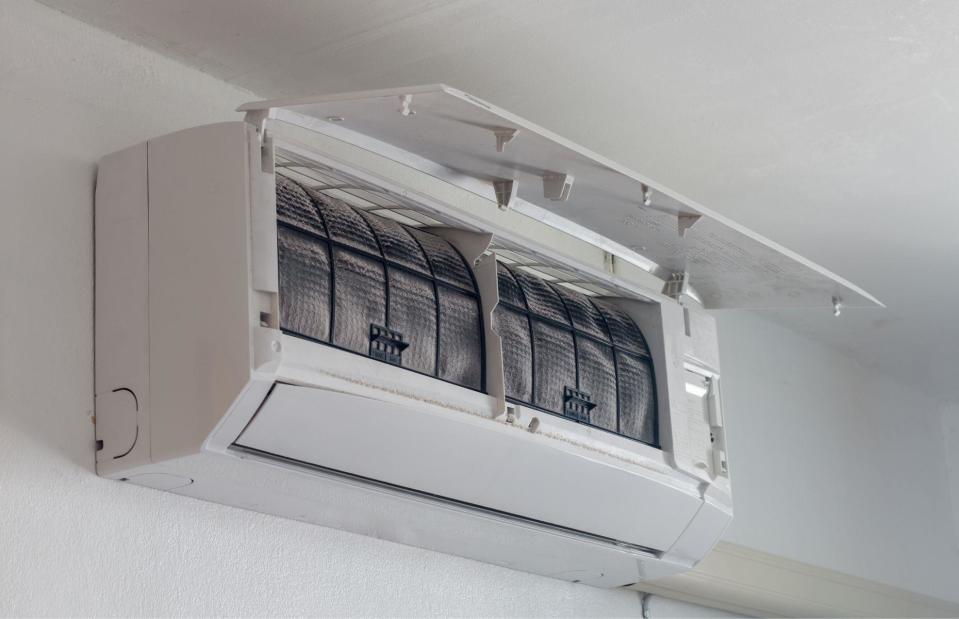
EAKNARIN JITONG / Shutterstock
If you're lucky enough to have a home air-conditioning unit, then you'll need to ensure that the filter inside your machine is regularly cleaned or changed.
There to catch dust particles, clogged filters will restrict air flow, reducing the efficiency of your gadget and eventually leading to its demise. It's recommended that filters should be cleaned at least once a month and a vacuum cleaner is the perfect tool for the job. Disposable filters should be replaced every few weeks.
Forgetting about toaster crumbs
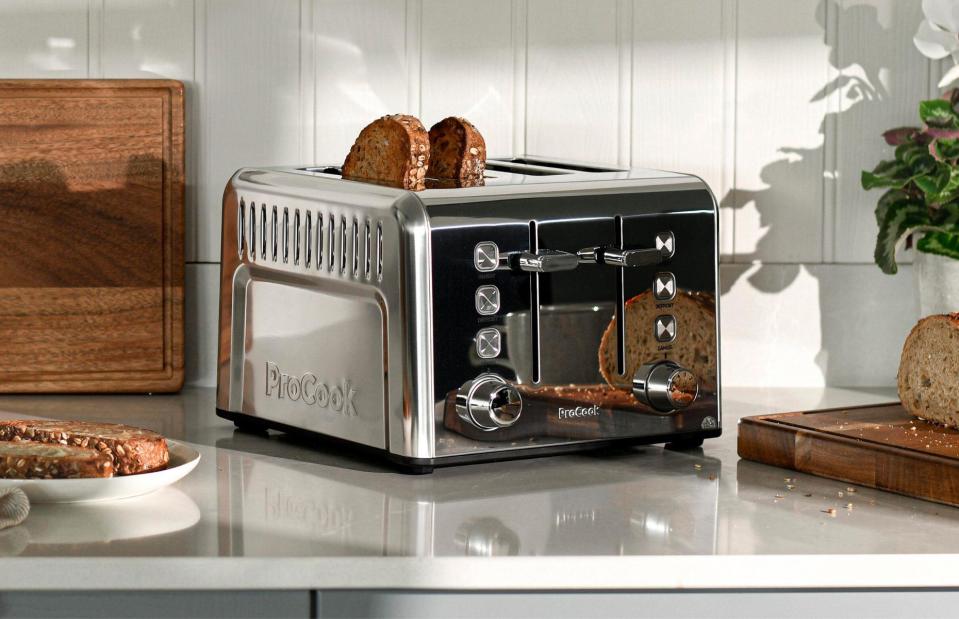
ProCook
The ideal tool for whipping up a speedy breakfast, we often neglect our toasters during the weekly cleaning schedule. Yet these gadgets can quickly become unsanitary and unsafe. Excess crumbs will not only affect your device's efficiency, but they could also be a fire risk.
“When crumbs accumulate, they can become hot enough to ignite, triggering a fire.
To prevent this from happening, make sure you clean out your toaster regularly to eliminate any crumbs or debris,” Morphy Richards advises. Unplug your toaster and empty the crumb catcher after every use. Whatever you do, don't shake the machine, as crumbs can become lodged on heater elements, hindering the toaster's performance.
Ignoring the tumble dryer lint filter

Mizantroop / Shutterstock
You must regularly empty the lint filter in your tumble dryer. A build-up of fluff will restrict air flow, meaning your machine has to work overtime to dry your clothes. Lint can increase humidity levels, causing mould to grow and could also be a possible fire hazard.
In fact, fire services in England have been called to a reported 3,200 tumble dryer fires over the last five years – that's almost two a day. Most manufacturers recommend emptying the lint filter after every use, but if you have an older machine, you'll need to maintain its exhaust instead.
Overloading appliances
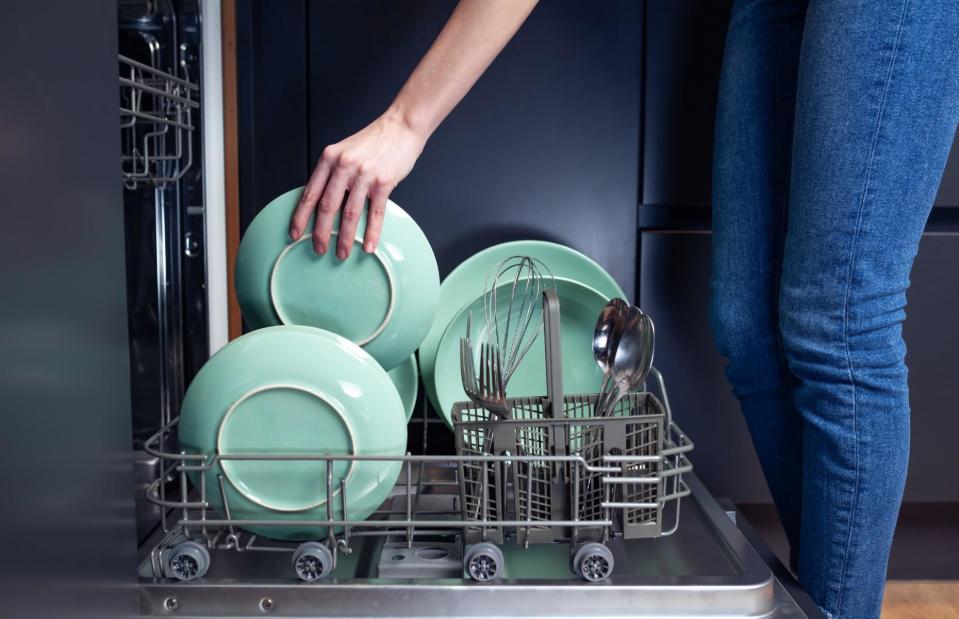
Gabi Moisa / Shutterstock
Are you guilty of this bad home habit? Fridges, freezers, washing machines and dishwashers all become far less efficient if they’re overloaded.
While food storage appliances will have to work twice as hard to keep your food at the right temperature, washers and dryers may malfunction if filled to capacity, damaging your clothing and affecting internal elements.
In the long run, cramming your appliances will cost you more in electricity, will lead to poor performance and will shorten the lifespan of your devices.
Forgetting about the hairdryer
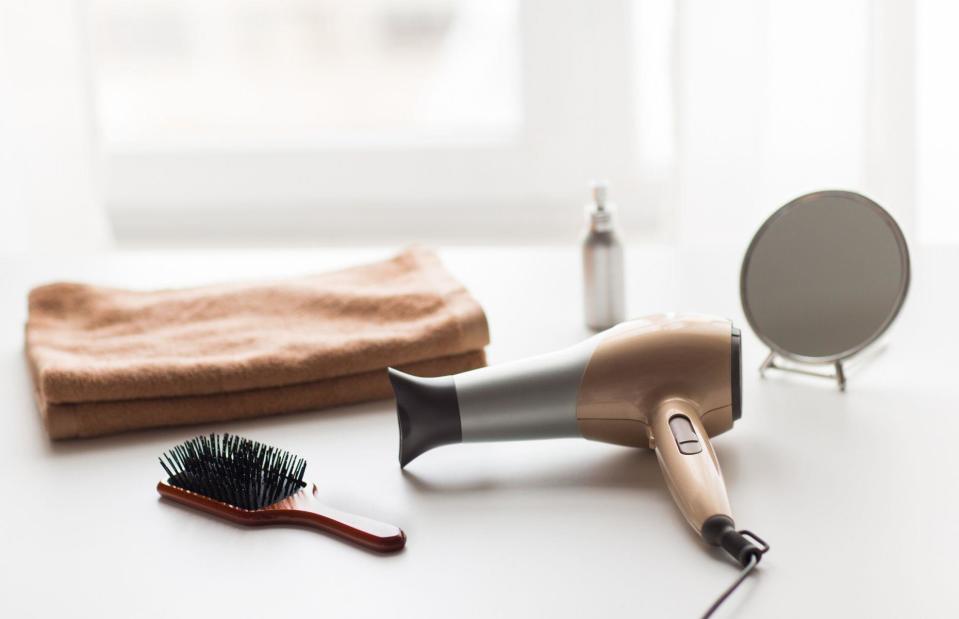
Syda Productions / Shutterstock
Our hairdryers often get tossed into a drawer and forgotten about. Yet a clogged hairdryer could quickly become hazardous.
Every gadget features a filter vent, protecting hair from the heating element inside and blocking any dust from entering the machine. When the vent becomes blocked, air will be unable to flow, causing the hairdryer to overheat and potentially catch fire.
Cleaning a hairdryer is simple. Ensure it’s unplugged and remove the filter from the rear vent. Run it under water to remove any dirt and make sure it’s bone dry before putting it back.
Neglecting the freezer
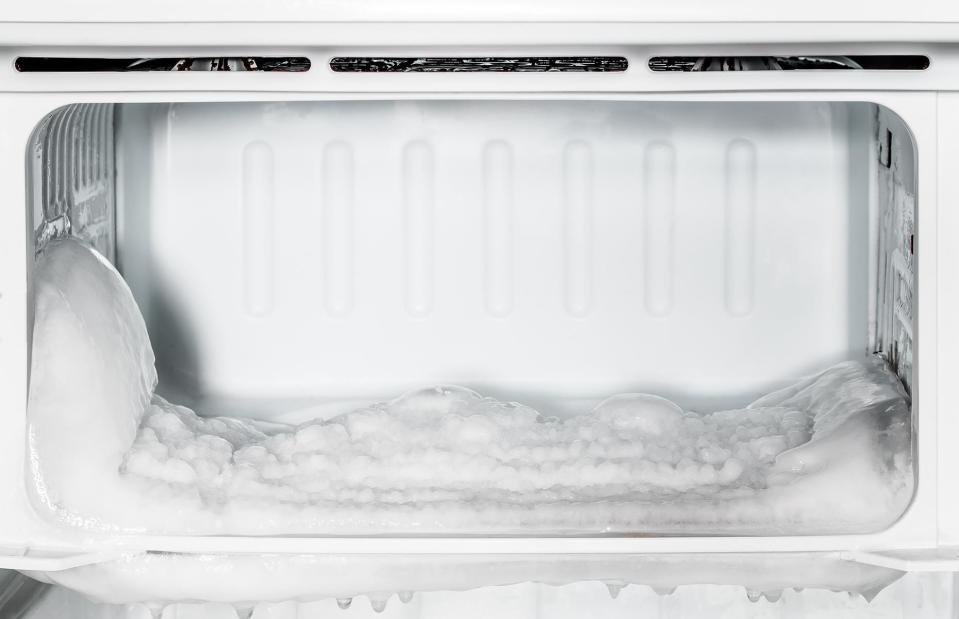
Nattapon B / Shutterstock
Over time, ice will build up in your freezer and while defrosting it can seem like a fiddly and time-consuming job, doing so is essential.
While modern freezers come with a frost-free feature, older models need to be tackled by hand. You should defrost your machine around twice a year to prevent ice from damaging the freezer's internal elements. Excessive ice will also reduce the amount of usable space inside your machine and render it inefficient, elevating your energy bills.
Abandoning refrigerator coils
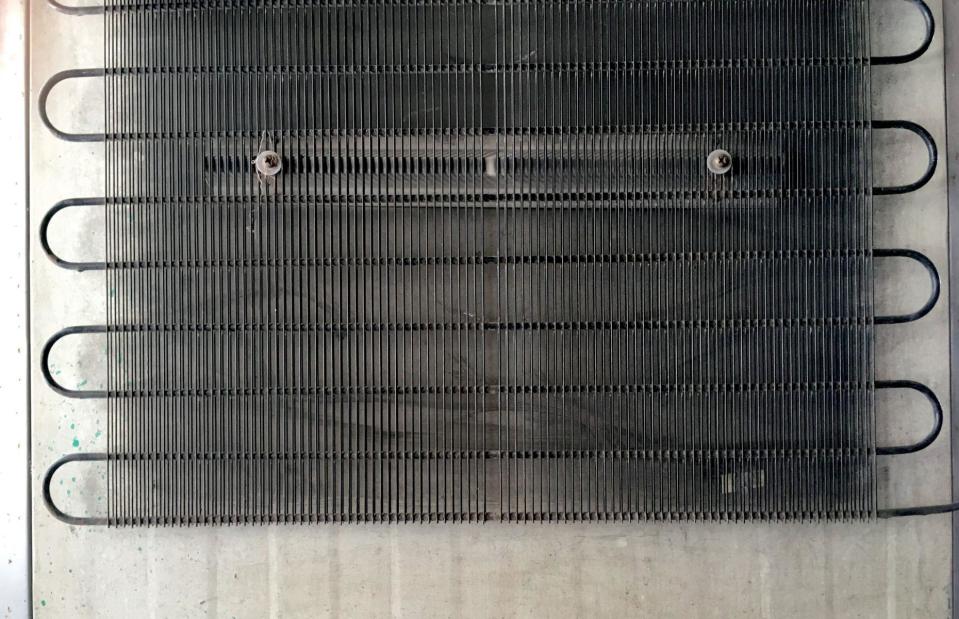
JunAh / Shutterstock
You may remember to regularly clean inside your refrigerator, but how often do you clean the back of your machine? This is where the fridge's essential cooling elements are kept and they should be looked after in the same way you would look after the rest of the appliance.
The heat exchanger, or coils, can become clogged by hair, dust and grease, restricting airflow and causing the device to have to work twice as hard to keep the interior at the perfect temperature.
Misusing the garbage disposal
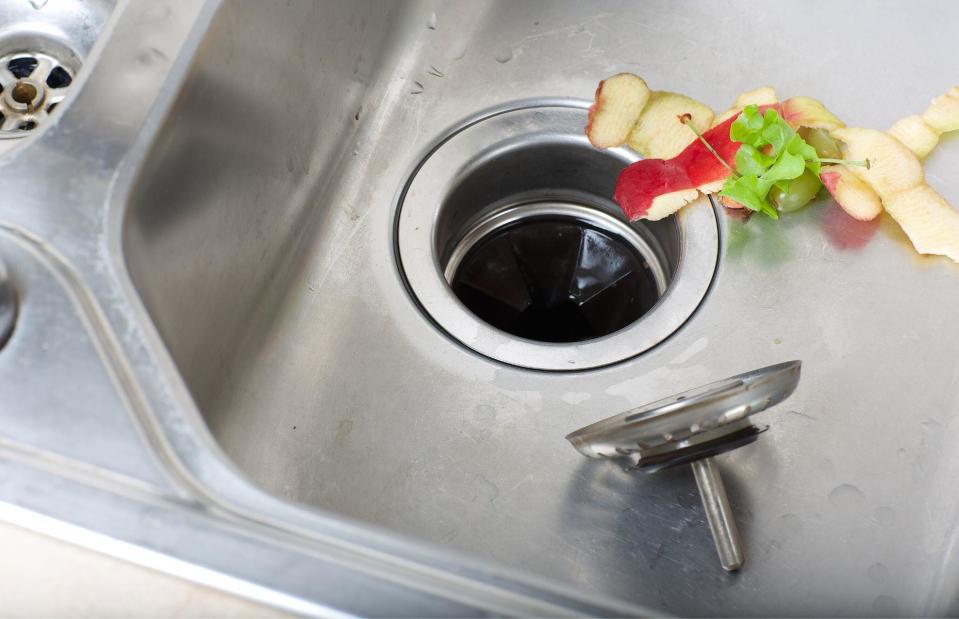
Tolikoff Photography / Shutterstock
There are plenty of ways you can misuse your garbage disposal and all of them are bad for business. Many forget to run water before and after placing food into the disposal, while others allow grease and fat to fall inside, leading to blockages and bad odours.
While you might be tempted to pour harsh cleaning products down there, the best way to keep your disposal clean and fresh is to place some baking soda and vinegar down the shoot. Grinding up a few ice cubes will also help to remove any food that has become clogged inside.
Overlooking the showerhead
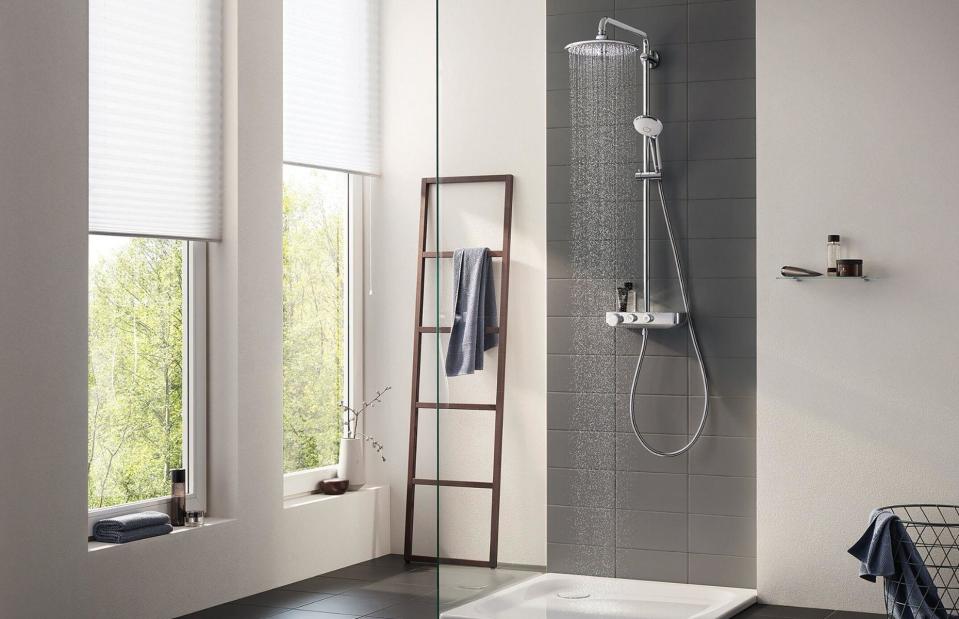
GROHE
There's nothing better than a sparkling bathroom, but we often overlook our showerheads. Over time, yours will become coated in limescale and if left, will gradually block the holes in the nozzle, preventing water from flowing correctly.
If you've noticed a change in pressure, or that the water sprays in all directions, then it's time to tend to your shower. It’s best to check with your shower supplier for maintenance recommendations and there are also modern options out there, such as GROHE’s SpeedClean, that uses technology to actively keep limescale at bay.
Leaving the microwave switched on
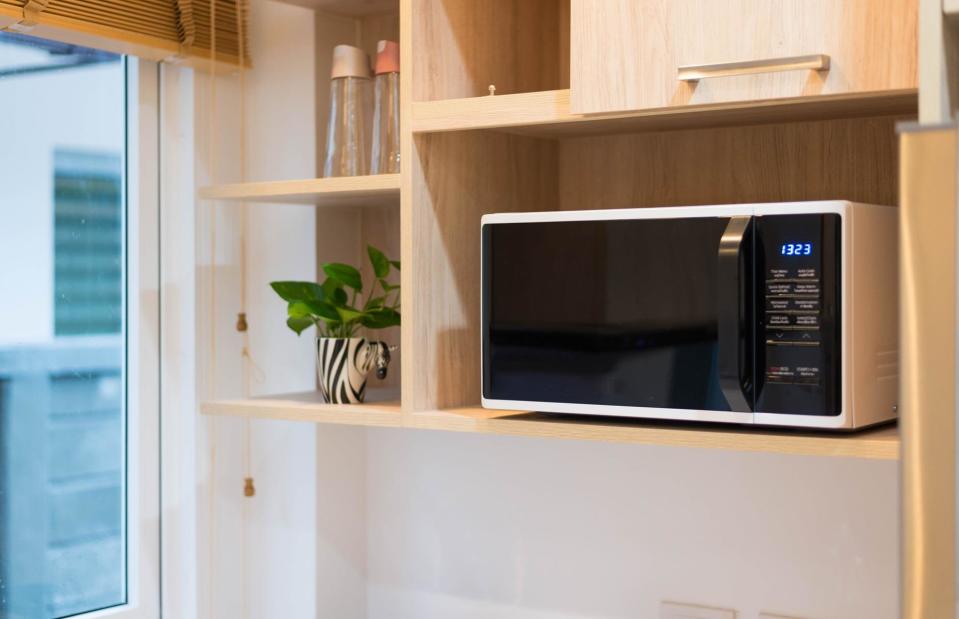
stock_SK / Shutterstock
While some home appliances need to remain plugged in at all times, some items can be switched off and unplugged to save energy. One such appliance is the humble microwave.
Often overlooked, microwaves sit unused for the majority of the time, all the while burning energy to keep their digital clocks displaying the time. Give your microwave a break and turn off the power when it's not in use – you'll not only improve its longevity but save yourself some cash, too!


